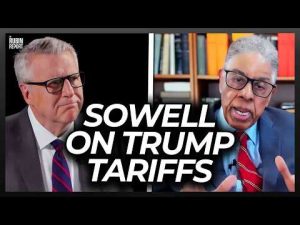The state of American manufacturing is at a tipping point, a reality that has become impossible to ignore. With a stark trade imbalance that sees foreign automakers flooding the U.S. market while American companies struggle in international markets, it’s time for a reckoning. In a bold move, political leaders have announced the imposition of a 25% tariff on all foreign-made automobiles, a decisive step aimed at protecting American jobs and restoring the country’s industrial base.
Consider the staggering statistics: 81% of the cars in South Korea and 94% in Japan are made within their own borders. In stark contrast, American automotive giants like General Motors and Ford face an uphill battle. They’re selling almost no foreign-made vehicles in markets overseas while Toyota is importing a million vehicles into the United States. This discrepancy isn’t just an economic annoyance; it’s a full-blown threat to national security. A nation that can’t manufacture its own cars is a nation dangerously reliant on other countries, and that should concern every American.
The blame for this crisis cannot be placed on foreign nations; rather, it rests squarely on the shoulders of past leaders and American trade policies. Over the years, these leaders have neglected to prioritize American interests, allowing these trade policies to unravel our industrial backbone. They stood by while manufacturing jobs left the country, paving the way for an economy that enriches foreign manufacturers while American workers suffer. Now, with the threat of tariffs, it seems there is a flicker of hope for restoring fairness in the market.
The newly proposed tariffs are more than just a financial maneuver; they represent a call to arms for patriots everywhere. An import tax on foreign automobiles sends a powerful message: American workers deserve protection from unfair competition. By prioritizing domestic manufacturing, the government is sending funds back into local economies where they belong, supporting communities, family businesses, and the very essence of American innovation.
Indeed, the stakes have never been higher. If the U.S. wants to retain its status as a global leader, it must first secure its home front. The introduction of these tariffs is not merely an economic strategy but a necessary measure to ensure that the American automobile industry can rise from the ashes of neglect and thrive once again. Now is the time for every citizen to rally behind this cause and support policies that defend American jobs and industries from the tide of unjust foreign competition. The future of American manufacturing hangs in the balance, and the defense of American values starts now.







